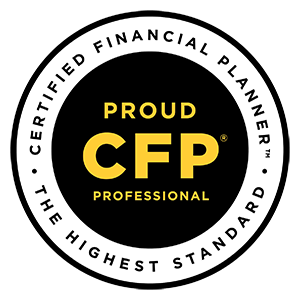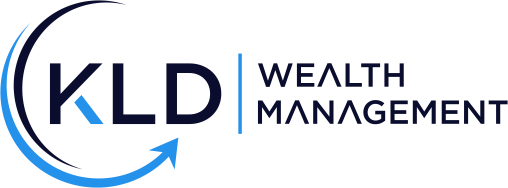Get in touch
Call or Text:
937-404-5180
Email:
dwiedmeyer@kldwealth.com
Save, Invest, or Pay Off Debt? Charting Your Path to Wealth
When it comes to managing your money, the choices can feel overwhelming. Should you focus on saving for the future, investing to grow your wealth, or paying off debt to reduce financial burden? Each option has its merits, and the right choice often depends on your unique financial situation. Let’s break down the differences, explore relevant data, and see how personal financial planning can help you decide which path is best for you.
Saving: Building a Financial Safety Net
Saving money is the foundation of any sound financial plan. It provides a safety net for unexpected expenses and helps you achieve short-term goals. According to a 2023 report by Bankrate, 57% of Americans are unable to cover a $1,000 emergency expense with savings. This statistic underscores the importance of building an emergency fund.
- When to Focus on Saving: If you don't have at least three to six months of living expenses saved, it’s wise to prioritize building your emergency fund. This buffer can prevent you from relying on high-interest debt in times of crisis and gives you peace of mind.
- Data to Consider: The average savings account interest rate in the U.S. is about 0.39% as of mid-2024. While this is low, the purpose of your emergency fund isn’t to grow wealth but to provide quick, accessible cash when needed.
Investing: Growing Your Wealth Over Time
Investing offers the potential to grow your wealth significantly over time. By putting your money into assets like stocks, bonds, or real estate, you can take advantage of compounding returns. Historically, the stock market has provided an average annual return of about 7% to 10% after inflation, according to data from the S&P 500.
- When to Focus on Investing: If you have a solid emergency fund and your debt is manageable, investing can help you build wealth over the long term. This is especially true if your investments have the potential to earn a higher return than the interest rate on your debt.
- Data to Consider: Consider the power of compounding: Investing $500 a month with an average return of 8% could grow to over $150,000 in 15 years. However, remember that investing involves risks, and returns are not guaranteed.
Paying Off Debt: Reducing Financial Burden
Debt, especially high-interest debt, can be a significant financial drag. The average credit card interest rate in the U.S. is over 20% as of 2024, which means carrying a balance can quickly become expensive. By paying off debt, you reduce your financial obligations and free up money for other goals.
- When to Focus on Paying Off Debt : If you’re carrying high-interest debt, such as credit card balances, paying it off should be a priority. The interest you save by eliminating debt can be more impactful than potential investment returns.
- Data to Consider : Let’s say you have a $10,000 credit card balance at a 20% interest rate. If you only make the minimum payment, it could take years to pay off and cost you thousands in interest. By focusing on paying off this debt, you can save a substantial amount of money.
How Financial Planning Can Help
Deciding whether to save, invest, or pay off debt isn’t always straightforward. That’s where personal financial planning comes in. A comprehensive financial plan takes into account your income, expenses, goals, and risk tolerance to create a roadmap tailored to your needs.
- Balancing Priorities: Financial planning helps you balance these priorities, ensuring that you’re building an emergency fund, investing for the future, and paying off debt in a way that aligns with your goals.
- Customized Strategy: Everyone’s financial situation is different. A financial planner can help you assess where you stand and develop a strategy that maximizes your financial potential while minimizing risk.
- Ongoing Guidance: As your life changes, so too should your financial plan. Regular check-ins with a financial planner ensure that your strategy adapts to new circumstances, helping you stay on track to achieve your goals.
Unsure of whether to save, invest, or pay off debt? Let’s chart a path that’s right for you. Contact us today to schedule a consultation and start building a personalized financial plan that aligns with your goals and aspirations.
________________________________________
Understanding the balance between saving, investing, and debt repayment is key to achieving financial freedom. With a clear plan in place, you can confidently navigate your financial journey and make decisions that support your long-term success.





Phone
937-404-5180
706 Deerfield Rd.
Lebanon, OH 45036
Get financial wellness tips, directly to your inbox.
Contact Us
We will get back to you as soon as possible.
Please try again later.
All Rights Reserved | KLD Wealth | Privacy Policy | Form ADV
Advisory services offered through KLD Wealth Management, LLC, an investment adviser registered with the state(s) of Ohio. Advisory services are only offered to clients or prospective clients where KLD Wealth Management, LLC and its representatives are properly registered or exempt from registration.
The information on this site is not intended as tax, accounting or legal advice, nor is it an offer or solicitation to buy or sell, or as an endorsement of any company, security, fund, or other offering. Information provided should not be solely relied upon for decision making. Please consult your legal, tax, or accounting professional regarding your specific situation. Investments involve risk and have the potential for complete loss. It should not be assumed that any recommendations made will necessarily be profitable.
The information on this site is provided “AS IS” and without warranties either express or implied and the information may not be free from error. Your use of the information provided is at your sole risk.
